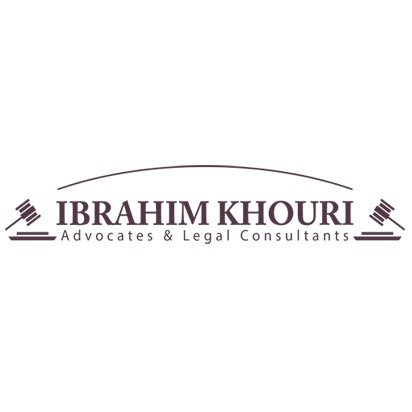Best Land Use & Zoning Lawyers in Al Ain City
Share your needs with us, get contacted by law firms.
Free. Takes 2 min.
Free Guide to Hiring a Real Estate Lawyer
List of the best lawyers in Al Ain City, United Arab Emirates
About Land Use & Zoning Law in Al Ain City, United Arab Emirates
Land use and zoning law in Al Ain City, akin to the rest of UAE, regulate the way lands and properties can be utilized, with an aim to create orderly and logical development. These laws determine the activities that may be pursued on particular lands, such as residential, commercial, agricultural or industrial purposes. It also outlines restrictions on buildings' heights, sizes, and spacing within designated zones, and often includes management for environmental conservation.
Why You May Need a Lawyer
Understanding and navigating the intricacies of zoning regulations can be complex. Individuals or businesses may need a lawyer when seeking permissions for changing the designated use of a property, opposing planned developments, applying for variances, or dealing with alleged zoning violations. Lawyers can provide clear guidance through the legal procedures and assist in negotiations or disputes.
Local Laws Overview
Al Ain City, being part of Abu Dhabi Emirate, falls under the jurisdiction of Abu Dhabi Urban Planning Council (UPC). The UPC has developed the Abu Dhabi Emirate zoning codes which govern land use and zoning in Al Ain City. The city is predominantly zoned for residential use, and strict regulations are imposed on commercial and industrial activities, particularly within residential zones. The laws also stipulate the requirements for heritage conservation and encourage sustainable and environment-friendly practices.
Frequently Asked Questions
What types of land uses are commonly allowed in Al Ain City?
The city primarily allows residential, agricultural, commercial and some types of industrial uses. However, the exact type and nature of the activities allowed depends on the specific zoning codes applicable to that land.
Can land use designation be changed?
Yes, you can apply for a change in the land use designation called 'rezoning'. However, it involves a formal process where the merits of your application will be assessed by the relevant authority, and a public hearing may also be required.
Who enforces land use & zoning laws in Al Ain City?
The Abu Dhabi Urban Planning Council (UPC) is responsible for enforcing land use and zoning laws in Al Ain City.
What can I do if my application for variance or rezoning is rejected?
You can choose to challenge this decision in court. It is advisable to hire a lawyer experienced in the field of land use and zoning in Al Ain to represent your case.
What are the penalties for violating zoning laws?
Violating zoning laws can lead to a range of penalties, from fines to injunctions requiring you to cease the non-compliant activity or even to tear down non-compliant structures.
Additional Resources
Abu Dhabi Urban Planning Council and the Department of Urban Planning and Municipalities are key authorities to contact for land use and zoning matters in Al Ain City. There are online resources available on their websites to gain more understanding about the specific regulations and compliance methods. Resources like legal consultation firms or property management companies can also be utilized for specialized advice.
Next Steps
If you need legal assistance in land use and zoning, it's advisable to hire a lawyer experienced in this field. Prepare all relevant documentation and information related to your case. Be sure to be clear about your goals, whether it's to apply for rezoning, to challenge a decision or to obtain a variance, so that your legal representative can strategize accordingly.
Lawzana helps you find the best lawyers and law firms in Al Ain City through a curated and pre-screened list of qualified legal professionals. Our platform offers rankings and detailed profiles of attorneys and law firms, allowing you to compare based on practice areas, including Land Use & Zoning, experience, and client feedback.
Each profile includes a description of the firm's areas of practice, client reviews, team members and partners, year of establishment, spoken languages, office locations, contact information, social media presence, and any published articles or resources. Most firms on our platform speak English and are experienced in both local and international legal matters.
Get a quote from top-rated law firms in Al Ain City, United Arab Emirates — quickly, securely, and without unnecessary hassle.
Disclaimer:
The information provided on this page is for general informational purposes only and does not constitute legal advice. While we strive to ensure the accuracy and relevance of the content, legal information may change over time, and interpretations of the law can vary. You should always consult with a qualified legal professional for advice specific to your situation.
We disclaim all liability for actions taken or not taken based on the content of this page. If you believe any information is incorrect or outdated, please contact us, and we will review and update it where appropriate.









